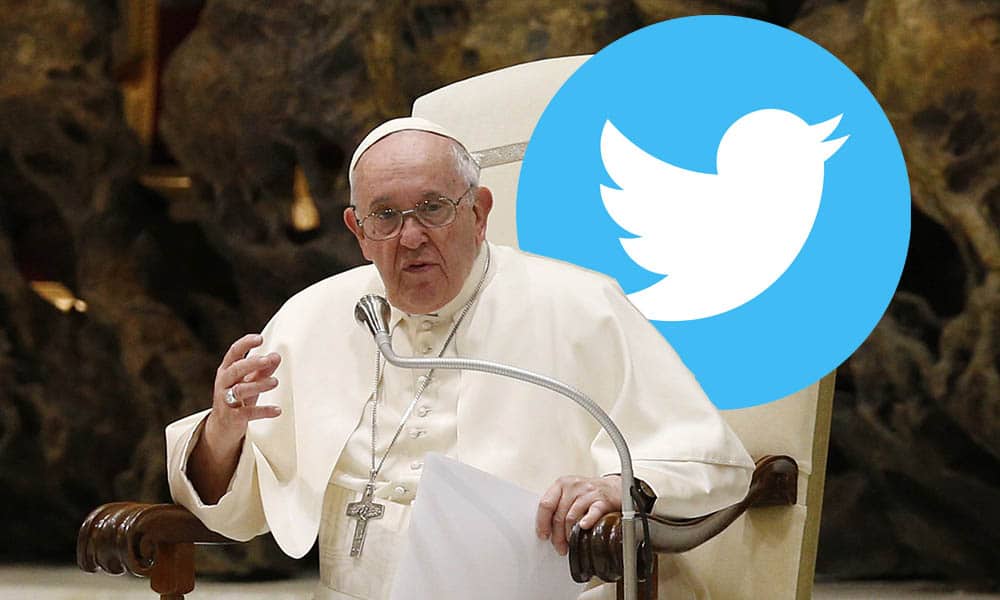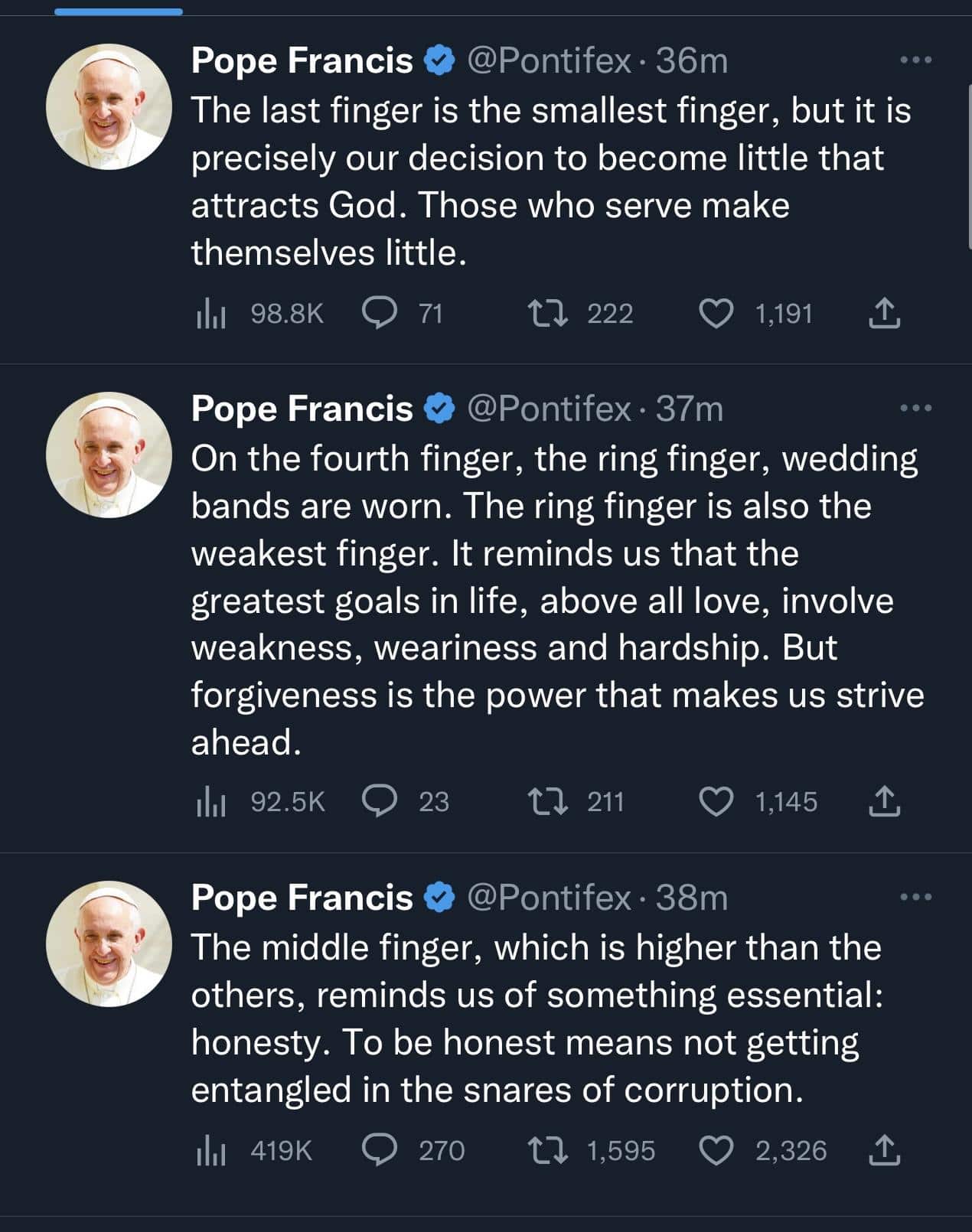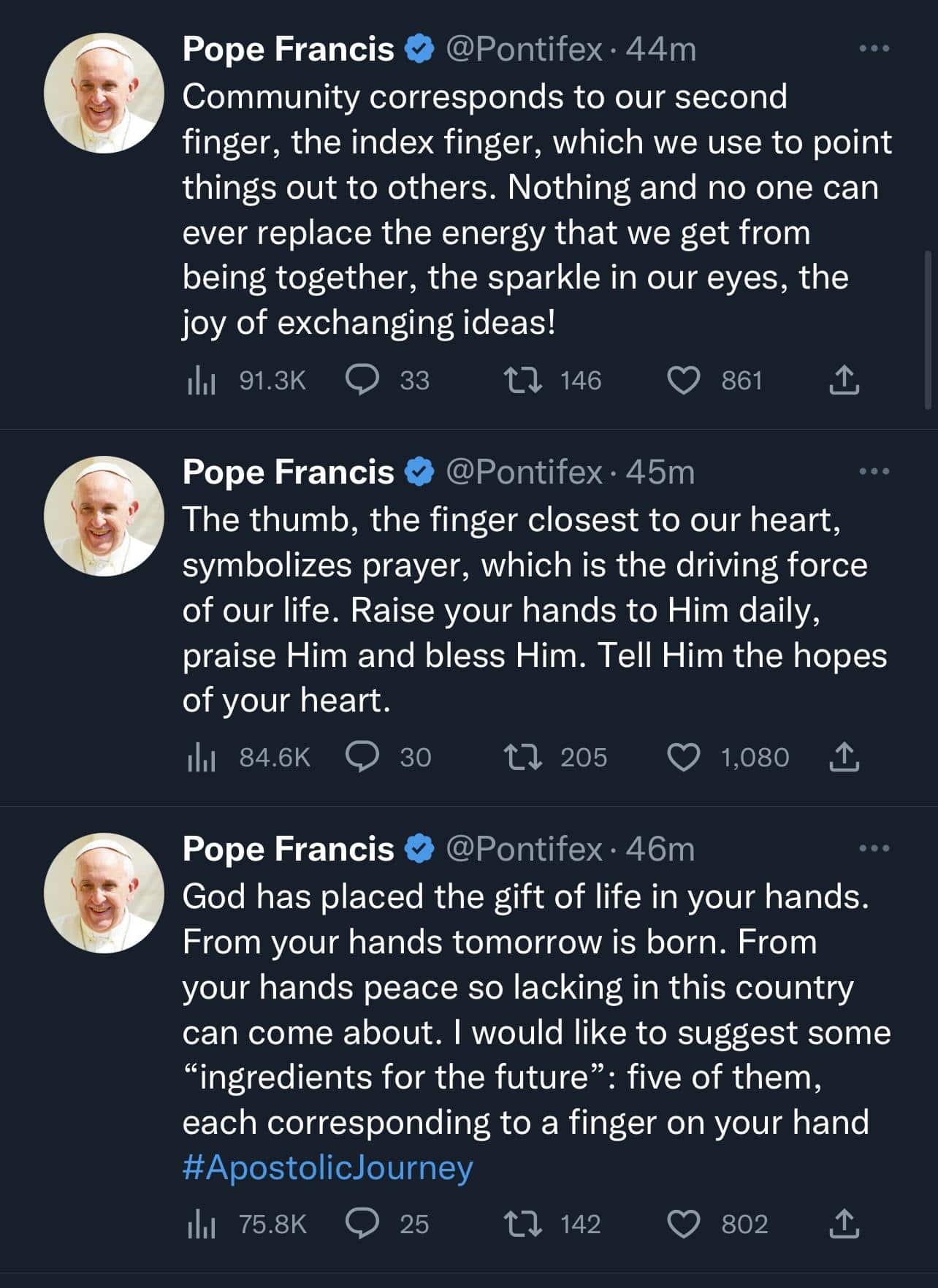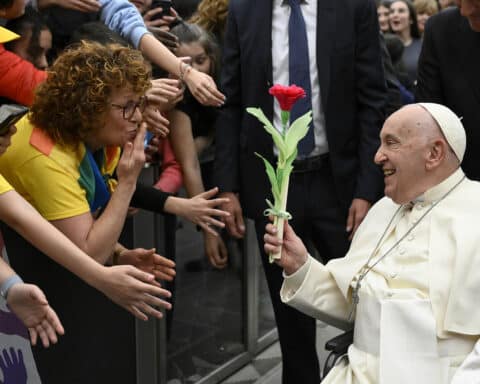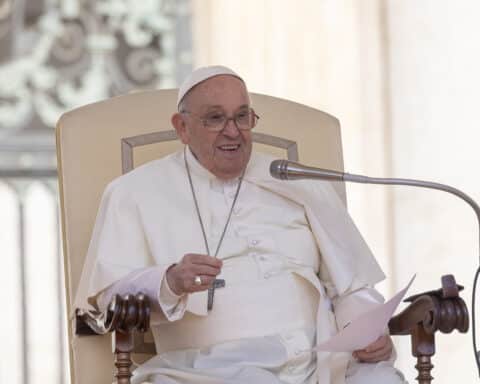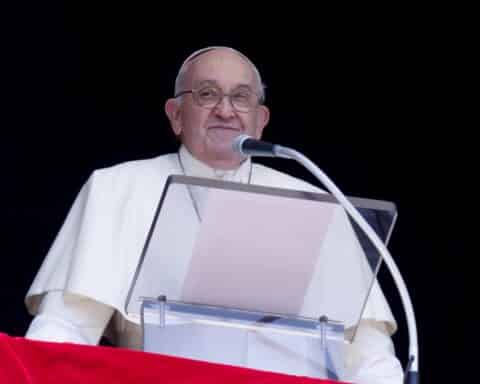On Thursday morning at 9 a.m. EST, a tweet from Pope Francis’ official English language Twitter account was posted. The tweet read: “The middle finger, which is higher than the others, reminds us of something essential: honesty. To be honest means not getting entangled in the snares of corruption.” Immediately, vulgar replies followed. The tweet was deleted within the hour.
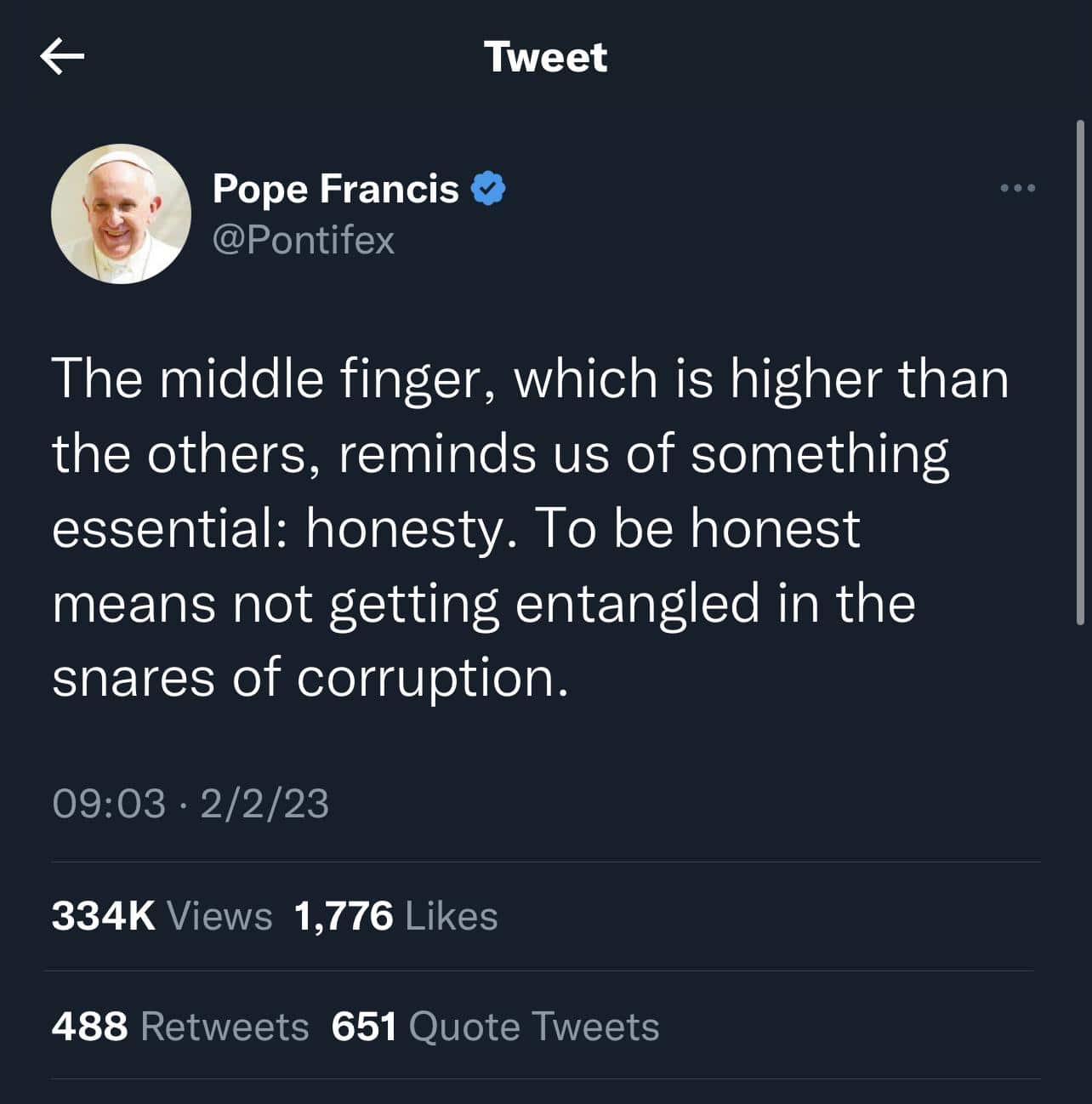
A new tweet was posted shortly after, which reads: “The third finger, which is higher than the others, reminds us of something essential: honesty. To be honest means not getting entangled in the snares of corruption.” As of this writing, sarcastic and crude responses continued to follow.
An analogy taken out of context
The ‘middle finger’ tweet was a quote taken from the meeting with young people and catechists at the Stadium of the Martyrs of Kinshasa during the course of the pope’s current apostolic journey to the Democratic Republic of Congo. On Twitter, the standalone tweet was one part of a series of tweets, each message referring to a part of the hand.
Pope Francis is known for his down-to-earth and accessible wisdom. In this meeting with young people, he used the hand as a homiletic device. Recall that his audience is young people in the DRC. Their youth has been marked by war, violence and poverty. To them, the pope was saying that the power to do something more is in their hands.
Instructing his young hearers to “open the palms of your hands” he encouraged them to take a good look at their hands. “Dear friends, God has placed the gift of life, the future of society and the future of this great country in those hands of yours,” the pope said. Assuring them of the value of their contribution to the causes of “giving” and “loving” rather than “grabbing” and “hating,” Pope Francis told them that their hands are “a unique treasure.” Offering the example of Cain who turned against his brother Abel, the pope underscored the choice that each of the young people present has. He urged, “Young people, you who dream of a different future: from your hands, tomorrow can be born; from your hands, peace so lacking in this world can at last come about.”
The meaning of the fingers
In the analogy of the hands that labor for peace, the thumb, the finger closest to the heart, represents prayer. Prayer “far from our concrete problems” said the pope, but it is “the basic ingredient for the future.”
The index finger symbolizes community, says the pope, because it points to others. “Community is the way to make us feel good about ourselves and to be faithful to our true calling,” Pope Francis said. He cautioned young people about the dangers of isolation and of false community like “the occult and witchcraft.”
The middle finger, which rises above the others, represents honesty. Christians, Pope Francis said, must be known for virtuous living, especially honesty. The pope warned about “getting entangled in the snares of corruption” and encouraged those present to “be the ones who transform society, the ones who turn evil into good, hatred into love, war into peace.”
The ring finger, which is the hardest to raise, is a sign of the need for forgiveness. “To forgive does not mean forgetting the past,” Pope Francis said, “it means refusing to repeat it.” Holding up the example of Blessed Isidore Bakanja, who was tortured for encouraging other young people in the faith, the pope highlighted how he forgave his torturer. “Those who forgive build the future,” insisted the pope.
Finally, the pinky finger, the smallest finger, represents our need to become small in service. Although young people may feel “whatever good I can do is but a drop in the ocean,” Pope Francis encouraged them, saying, “Jesus tells us that service is the force that transforms the world.”
Listening across cultures
Reading through an American lens, we might have a good laugh at the tweet’s unfortunate subtext. However, in this instance, as in many others, we have to look at a global context, recognizing that the offensive meaning of the phrase “the middle finger” is American.
We can’t be afraid to look beyond our own context. We can’t allow the urgent message of the pope to be lost. The lesson of the five fingers, a critical one for Congolese young people today, can enrich every heart.
Father Patrick Briscoe, OP, is editor of Our Sunday Visitor. Follow him on Twitter @PatrickMaryOP.

